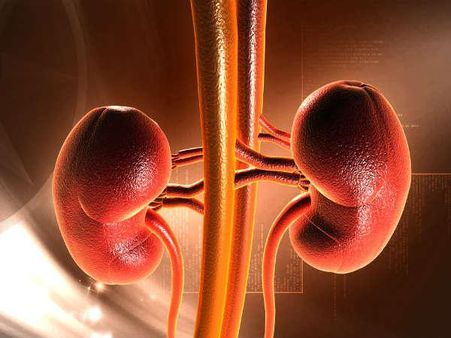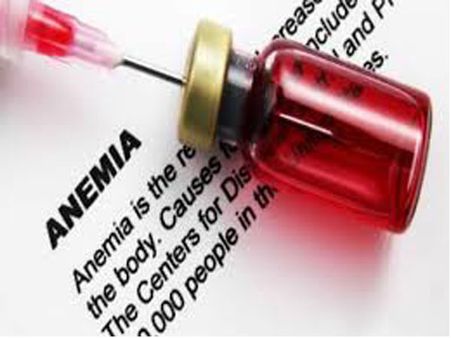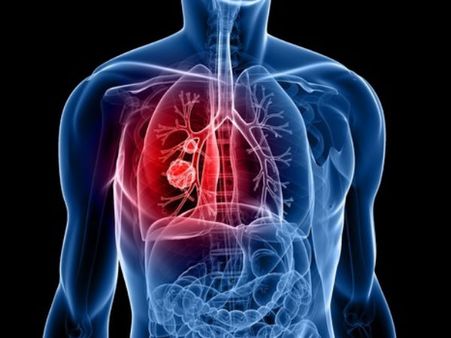Just In
- 5 hrs ago

- 6 hrs ago

- 9 hrs ago

- 9 hrs ago

Don't Miss
- Movies
 Kalki 2898 AD: Facts About Ashwatthama To Know Before Watching Prabhas-Amitabh Bachchan's Film
Kalki 2898 AD: Facts About Ashwatthama To Know Before Watching Prabhas-Amitabh Bachchan's Film - News
 Who Is Lisa Pisano, New Jersey Woman Gets Pig Kidney Transplant And Heart Pump?
Who Is Lisa Pisano, New Jersey Woman Gets Pig Kidney Transplant And Heart Pump? - Sports
 Pakistan vs New Zealand 4th T20 Live Score, Latest Updates From Lahore: Babar Azam Opts To Bowl First; Fakhar Zaman, Imad Wasim Return To Line-Up
Pakistan vs New Zealand 4th T20 Live Score, Latest Updates From Lahore: Babar Azam Opts To Bowl First; Fakhar Zaman, Imad Wasim Return To Line-Up - Finance
 Tech Mahindra Q4 Results: Cons PAT Declines 41% YoY To Rs 661 Crore; Exits FY24 In Red
Tech Mahindra Q4 Results: Cons PAT Declines 41% YoY To Rs 661 Crore; Exits FY24 In Red - Automobiles
 Royal Enfield Unveils Revolutionary Rentals & Tours Service: Check Out All Details Here
Royal Enfield Unveils Revolutionary Rentals & Tours Service: Check Out All Details Here - Technology
 Elon Musk’s X Is Launching a TV App Similar to YouTube for Watching Videos
Elon Musk’s X Is Launching a TV App Similar to YouTube for Watching Videos - Education
 AICTE introduces career portal for 3 million students, offering fully-sponsored trip to Silicon Valley
AICTE introduces career portal for 3 million students, offering fully-sponsored trip to Silicon Valley - Travel
 Escape to Kalimpong, Gangtok, and Darjeeling with IRCTC's Tour Package; Check Itinerary
Escape to Kalimpong, Gangtok, and Darjeeling with IRCTC's Tour Package; Check Itinerary
Negative Effects Of Aspirin On The Body
The negative effects of aspirin include gastrointestinal problems, renal problems, etc. Read to know about the side effects of aspirin.
Aspirin is a drug that has the ability to relieve pain and also reduce the risk of other complicated issues like heart attack and stroke.
Aspirin is available in forms like pills and tablets that are dissolved in water, powders and as oral gels. These are readily available in drug stores.
Aspirin can be used for various health conditions, but the usage needs to be in moderation as the dosage is very important.

High doses of aspirin can help relieve pain, reduce swelling, reduce fever, headaches, cold, flu, general aches as well as period pain. This article will let you know what are the side effects of taking aspirin at high doses and over the counter.
Aspirin can also be used for long term at low doses to stop the development of blood clots and also make the blood vessels less sticky for patients who have suffered from heart attack, stroke, peripheral arterial disease, etc.
In this article, we have mentioned some of the side/ill effects of aspirin that you need to be aware of. Drugs or medicines must always be used as per a physician's advice and overdose or continuous usage of any drug can lead to severe side effects that can in turn cause various complications.
Read further to know about the side effects of aspirin.

1. Gastrointestinal Problems:
The side effects of aspirin on the gastrointestinal system include epigastric distress that occurs in people with regular usage of aspirin. Some of the problems that can occur include abdominal pain or discomfort, nausea, vomiting and endoscopically identifiable mucosal injuries.

2. Renal Problems:
The administration of high doses of aspirin in some people has brought about acute renal failure. The renal side effects of aspirin include the decrease in glomerular filtration rate, reduction in arterial blood volume, heart failure, increase in blood urea nitrogen, haematuria and complete renal failure.

3. Metabolic Problems:
Metabolic problems are also some of the side effects of aspirin and these include dehydration and hyperkalaemia. Some of the other effects are metabolic acidosis and respiratory alkalosis. This is one of the top bad effects of aspirin.

4. Haemotological Side Effects:
The side effects of aspirin also include haemotological ones that contain increased blood fibrinolytic disease. The side effects also include eosinophilia and aplastic anaemia.

5. Cardiovascular Disease:
The cardiovascular side effects include salicylate-induced variant angina, conduction abnormalities, ventricular ectopy and hypotension, especially during salicylate toxicity. Further, a case of fluid retention has been found to simulate acute congestive heart failure during aspirin therapy.

6. Nervous System Side Effects:
The side effect of aspirin does not spare the nervous system as well. These side effects include headaches, dizziness, confusion, agitation, coma, cerebral oedema, cranial haemorrhage, seizures and lethargy.

7. Respiratory Problems:
Some of the respiratory problems that can arise are hyperpnea, tachypnea and pulmonary oedema. This is also confirmed in the study 'Aspirin hypersensitivity in patients with chronic rhinosinusitis and nasal polyposis: Frequency and contributing factors'.

8. Hypersensitivity:
Some of the side effects of aspirin include conjunctivitis, rhinitis, bronchospasm, anaphylaxis, urticaria and angioedema. This has also been noted in the study, 'EAACI/GA2LEN guideline: aspirin provocation tests for diagnosis of aspirin hypersensitivity'.

9. Minor Side Effects:
Some side effects that do not require medical attention are dizziness, vertigo, anxiety, belching, sour stomach, stomach upset, dry mouth, hyperventilation, trouble in sleeping, unusual tiredness and weakness.

10. Dermatological Problems:
Some of the dermatological side effects that are associated with aspirin are lichenoid eruption and Stevens-Johnson syndrome. Aspirin therapy has also been associated with some cases of unilateral wrinkles in the papuloery throderma and palms.

11. Oncological Side Effects:
These are a result of aspirin consumption and their effects also include pancreatic cancer. More research is being conducted to know about the other possible oncological side effects of aspirin use.

12. Bleeding:
Bleeding is also one of the top side effects of aspirin consumption and is also the most dangerous one. Some of the signs and symptoms include nose bleeds, bleeding from wounds, cuts, scrapes, bruises, etc., that are difficult to heal.

13. Allergic Side Effects:
Another one of the side effects of aspirin is allergic reactions. The symptoms include swelling of the tongue, lips and face, sudden and severe itching, skin rash, wheezing, asthma, shortness of breath, etc.

14. Other Side Effects:
One of it is Reye's syndrome that involves vomiting, dysfunction, neurological dysfunction, etc. Further, the side effects of aspirin also can be noticed in children who have been affected by acute viral illnesses.
-
 nutritionTomato Seeds: Benefits And Side Effects
nutritionTomato Seeds: Benefits And Side Effects -
 newsThis Helps To Lower Liver Cancer Risk – Study
newsThis Helps To Lower Liver Cancer Risk – Study -
 skin careGet Rid Of Acne Permanently With Aspirin
skin careGet Rid Of Acne Permanently With Aspirin -
 skin careAmazing Beauty Benefits Of Aspirin
skin careAmazing Beauty Benefits Of Aspirin -
 wellnessDo You Know The Benefits Of Aspirin?
wellnessDo You Know The Benefits Of Aspirin? -
 wellness10 Harmful Effects Of Aspirin Overdose
wellness10 Harmful Effects Of Aspirin Overdose -
 wellnessSix Different Ways To Use Aspirin
wellnessSix Different Ways To Use Aspirin -
 disorders cureAspirin Reduces Death Risk For Cancer Patients
disorders cureAspirin Reduces Death Risk For Cancer Patients -
 disorders cureImmune System Implicated In Fatal Cerebral Malaria
disorders cureImmune System Implicated In Fatal Cerebral Malaria -
 health5 Signs Your Kidneys Need Attention: Don't Ignore These Warning Signals
health5 Signs Your Kidneys Need Attention: Don't Ignore These Warning Signals -
 wellnessHeadache After Drinking Red Wine? This May Be The Reason!
wellnessHeadache After Drinking Red Wine? This May Be The Reason! -
 healthCan You Get Back COVID-Related Loss Of Sense Of Smell And Taste (Parosmia)? Looks Like You Can!
healthCan You Get Back COVID-Related Loss Of Sense Of Smell And Taste (Parosmia)? Looks Like You Can!


 Click it and Unblock the Notifications
Click it and Unblock the Notifications



